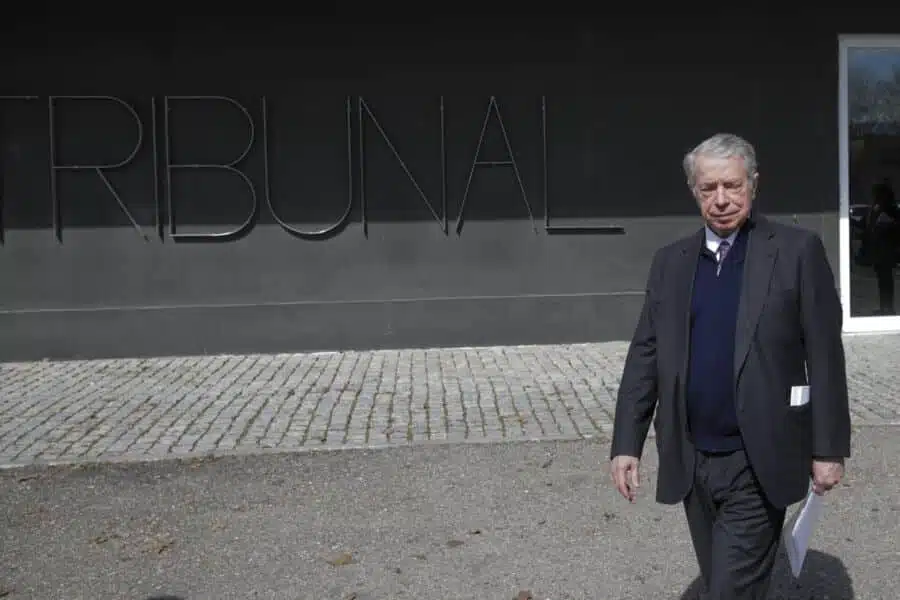Medical experts describe former BES boss’ level of incapacity as ‘moderate’
Defence lawyers acting for former BES ‘boss-of-all-this’ Ricardo Salgado have long argued that any kind of stay in jail would be a death sentence, and that their client cannot defend himself due to advancing Alzheimer’s disease. But today, the opinion of medical experts called in by a court have stresses that while the ex-banker is certainly suffering from a neurological illness, it is not sufficiently advanced to preclude him from entering a courtroom, or making a statement.
Said the conclusions of the report – to which Lusa news agency has had access – “it is confirmed that the examinee suffers from neurological/neuro-psychiatric pathology, more specifically very probable Alzheimer’s disease, and not only is the necessary clinical semiology present, but the diagnosis is also supported by complementary structural (imaging), functional (neuropsychological) and pathophysiological (biomarkers) diagnostic tests.”
Were this the extent of conclusions, it would have categorically backed up the claims of past months by Mr Salgado’s lawyers. But the conclusions continued to explain that the disease “is clinically moderate” and “does not make it impossible nor prevent” Mr Salgado from appearing in court and making statements.
The report had been requested by the judge of the central civil court of Cascais, where one of a number of cases against 79-year-old Mr Salgado is being heard.
As Lusa explains, although the defendant had not invoked the existence of a lack of judicial capacity, he had invoked “a situation of illness that will make it impossible for him to appear, or at least to appear with useful effect, since he is not in a position to give his testimony”.
This is what prompted the request to the National Institute of Legal Medicine and Forensic Sciences to provide “information aimed at confirming the veracity of the defendant’s allegation”, albeit the conclusion presented today stresses that anything Mr Salgado does say in court “could be compromised” by dint of his condition.
The analysis signed off by three experts (a psychological, a neurologist and a neuropsychologist) adds that “it could be useful, and medically advisable for Ricardo Salgado to be accompanied by a person of his choosing, for which he is capable” when he appears in court (if this in fact happens).
In other words, the report is very much ‘six of one, and half a dozen of another’: Ricardo Salgado could conceivably understand questions in court, but he could equally be unable to answer them competently.
Various news channels have picked up on this story, and explained the background: this medical opinion is something that had been requested for some time, and previously ‘rejected’, for example by the judge hearing the mega BES case, in which Mr Salgado faces over 60 charges.
But the Cascais judge – hearing the so-called EDP case, involving former economy minister Manuel Pinho and his wife Alexandra – did see the need for the report, and thus it will now be up to her to decide what to do with it.
It is still unclear how this report might affect the appeal Mr Salgado has lodged against the eight year jail sentence handed down to him earlier this year after his defence team tried to appeal against a sentence of six years, passed the year previously. ND
Source material: LUSA/ CNN Portugal




















